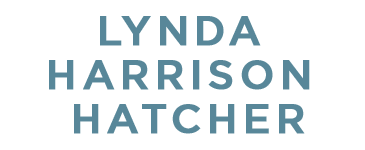Why Tell My Story?
After four years, Constance and I are very close to a polished manuscript. The last chapter should pull all loose threads and tie them neatly together–it’s a challenge and emotionally draining. The following excerpt lists a handful of the reasons why I’ve been called to tell my story.
_____________________________________________________________________________________________________
What would possess me to share shameful memories of losing my religion with a fifth-grader? Or my Christmas spent on a psych ward? Why tell my story?
“You must wonder why I tell it at all,” Robert Goolrick asks in his memoir, The End of the World as We Know It. “You must wonder at the selfishness, at the hurt inflicted, at the terrible aches revisited for no real reason.”
I tell my story for the invisible casualties of addiction.
The mothers who cried grateful tears, who put heart and soul into mothering and who,
nevertheless, feel they failed.
I tell it for the parents who’ve been robbed of the joy of seeing a child turn a passion into his
life’s work.
I tell it so that they, too, are not robbed of their own lives.
I tell it for the Greek Chorus and the Onlookers, that they may find compassion. For we cannot
know what goes on behind closed doors, even those flanked with wrought-iron planters full of
impatiens or pansies.
I tell it for the mothers who plucked wakeful toddlers from their cribs in the middle of the
night, wrapped them in baby blankets, and tiptoed downstairs to snuggle with them on the sofa
until they fell back to sleep. These women wonder, how did we get here from there?
I tell it for the parents who dared to issue a strong warning earlier tonight and who now pace
the floor, feeling weak and small and scared as the clock on the kitchen wall ticks past curfew.
They know it’s time to turn off the porch light and lock the front door. Still, they hesitate.
I tell it because they must do this.
I tell it for any parent who’s ever felt afraid of their child. You are not alone.
I tell it for the women who cross the street to avoid their friends rather than lie to them;
who answer well-meaning inquiries by changing the subject.
I tell it in gratitude for the wise counselors I’ve known. And to reassure anyone who’s listening
that, someone out there is willing to sit with you in your pain. And, when you’re feeling strong
enough, that same someone will stand by you as you take your first wobbly steps on the path to
healing. These people are angels. Know this. They will save you, if you’re open enough to allow
them in.
I tell it for the countless hours, weeks, and years I spent in church basement meetings, drinking
coffee from styrofoam cups and, later, reading Melody Beattie with the Book Club, so that I
may someday, heal for the people I love; the people who need me and who love me back.
Because even though it’s tempting, I’m not letting addiction win. Twice.
I tell it because it would be selfish not to share Pat’s healing wisdom. She’s too damn good to
keep to myself.
I tell it, Goolrick concludes: “Because I do believe with all my heart that there is a persistence
of song.”
Anyone who’s ever turned on the radio knows how a song can make it all better.
Sometimes, it’s the only thing.
